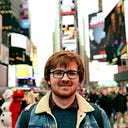Lessons of Auschwitz
80 years on from the liberation of the Nazi death camp, the world cannot forget history’s greatest lesson
On January 27 1945, soldiers of the Soviet Union entered Auschwitz-Birkenau concentration camp. Located in Eastern Poland, the camp was the biggest in the Nazi death camp network and was the site of one of the biggest atrocities in human history.
The liberating soldiers were greeted with open arms by survivors, who had suffered at the hands of a horrifying regime or systematic murder on an industrial scale. The liberators found the remains of hundreds of people killed by guards before they fled to escape persecution for the crimes committed.
Thousands more survivors were killed through death marches led by the prison guards as word of the Soviet approach got out. Smoldering remains of gas chambers and crematoriums were found by the liberators, in a further example of the Nazi attempt to cover up the horrifying events of this cursed place. Over 1.1 million men, women, and children died at Auschwitz-Birkenau, with over 90% being Jewish.
Under their reign of evil, the Nazis operated around 1,000 camps, although not all at the same time. As well as Auschwitz-Birkenau, the names Dachau, Bergen Belsen, and Treblinka have also left a chill that has rippled through the decades since the Nazi defeat.
In 2025, the 80th anniversary of the liberation of Auschwitz-Birkenau, the remaining survivors have spoken about their experiences in the death camp. The crimes of the Nazis are still in the living memory of a large number of people, but with the events of the 21st century, the prospect of humanity not learning from this dreadful chapter of history remains an ever-looming possibility.
The important factor to remember about the Nazi persecution of Jewish people and other groups is that it didn’t start with concentration camps. It started with Adolf Hitler using the despair of the German people, living through hyperinflation, to whip up hatred against the section of society he believed was to blame for the nation’s defeat in the First World War. His party became the biggest in the Reichstag and once he became Chancellor, the desires of the Nazis were imprinted on a population that had voted them into government.
In 1933 Hitler was sworn in as Chancellor. Seven years later, in 1940, Auschwitz opened as a concentration camp and the first prisoners were sent there. This was done without enough opposition to make an impact, and those who opposed Hitler were sent to camps like Auschwitz as the Second World War raged on around them.
In 2025, the world is divided by hatred and people still kill each other over race and religious beliefs. War crimes go unpunished and swathes of populations continue to suffer at the hands of corrupt regimes. We can all hope and pray that we never see another Holocaust on the industrial scale of that carried out by the Nazis, but the ease with which authority figures can stir up hatred and it goes unchecked on social media means that the odds of this being repeated on this scale are never zero.
In Gaza, innocent people have been attacked and murdered for years. The world knows it is happening, but no-one seems keen to stop it. We see images of the remains of children strewn in the rubble that was once their home, and all we can do is keep on scrolling. What kind of a society have we allowed ourselves to become?
Turning away from atrocities is what should be taught not to do. The horrors of the Nazi death camps and the stories of those who suffered there can never be forgotten but when people now say ‘Never Again’ there needs to be more eyes opened at what is going on around the world.
